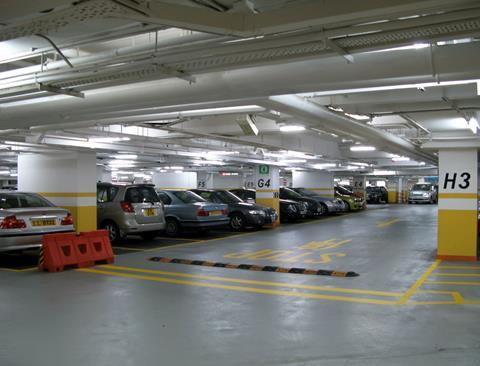Car parks are becoming an increasingly attractive asset type for real estate investors looking for a stable income, a PropertyEU investment briefing on alternative investments has heard.

Although the multi-storey car park is an established feature of the urban landscape, in the context of institutional investment it is a 'new kid on the block', according to Ruud Roosen, director of Parking Fund II at Bouwfonds Investment Management.
Roosen told the panel discussion held in the International Business Lounge at Provada in Amsterdam that parking appeals to investors because operators sign long-term rental contracts to secure the best locations, providing a secure income. Yields are also higher on average than many other asset classes.
'It's risk averse because the income coming out of a car park can be a little bit volatile, but it's far less volatile than the hotel sector, for example,' Roosen said.
The advent of driverless cars provides the main challenge to the parking sector, though reports indicate that the technology is around 15 to 20 years away from being consumer ready. Even then, said Mathijs Smissaert, commercial director of Apcoa Parking, drivers' habits will not change overnight.
'It's not only the technical challenges that have to be solved. There's another aspect, which is changing behaviour: it's difficult for people to let go,' said Smissaert. 'It will probably take another generation before people are used to self-driving cars.'
One change that self-driving cars could trigger is a shift in parking space from city centres to the periphery. Cars could be programmed to drop their users off in town and then drive themselves to a site out of town, where more land is available at a cheaper rate. However, there are still problems to be solved, such as managing the traffic if masses of people need to be picked up at the same time from an office, a theatre or a football stadium.
City centres will remain attractive
Investors can also cover their risk by designing car parks that can be converted to other uses to meet consumers' changing needs. 'I cannot tell you what the future will be like, but what I can tell you is that we buy good locations in inner cities which have an alternative use if we need it,' said Roosen.
Smissaert agreed: 'We are working on business models for alternative uses, but if you have a good location in a city centre there's always an alternative use.'
Dirk Bakker, director of hotels at Colliers International, suggested there were opportunities for synergies by using car parks for different purposes at different times of the day. Hotel car parks, for example, tend to be empty in the daytime, when they could be filled by the cars of workers or shoppers.
Bakker also queried the idea that the future of car parking lay on the periphery of cities. Many people are prepared to pay more for the convenience of parking in the centre of town, he argued, and there was no reason this demand would not continue.
'We still need space in the inner cities where these cars need to park,' he said. 'Why would the city government not see parking in the city centre as a premium? If you want to pay 20 bucks an hour to have your car close to the theatre, that's a choice. If you want to park 15 minutes down the road and take a tram and pay €1 an hour, that's another choice. Give people the choice, it's the simple thing to do.'










